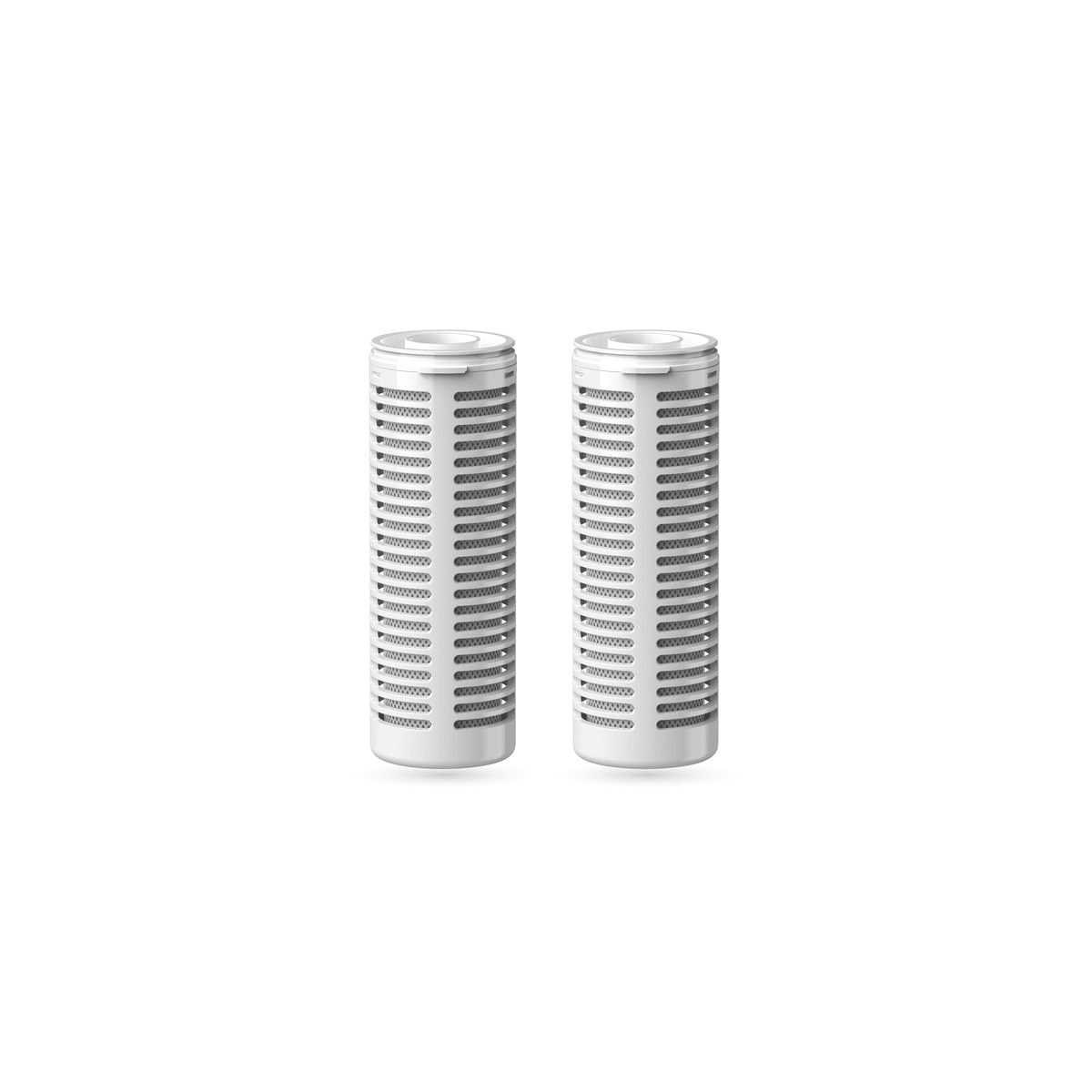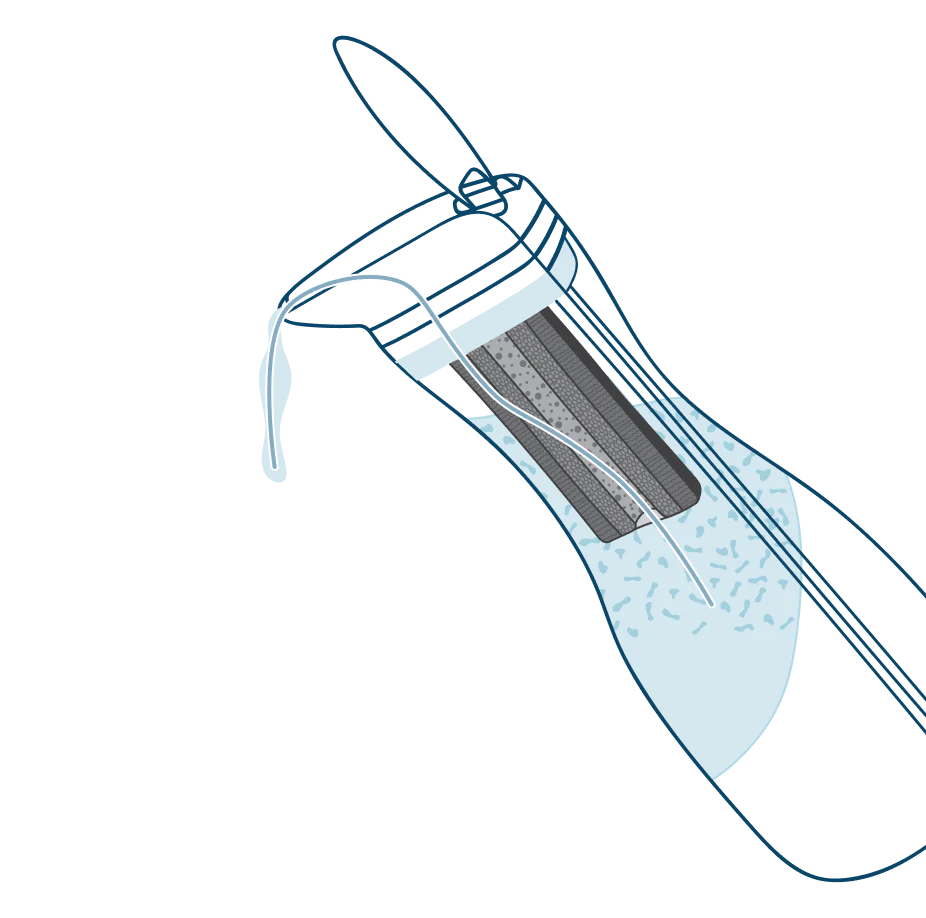


Microfiltration technology
PitcherPro uses 4-stage microfiltration technology with activated carbon and alkaline beads.
The activated carbon block, made from coconut shell, is capable of absorbing chemical, gaseous, metallic and organic elements thanks to its microscopic structure and highly porous surface.
As the water passes through the filter, substances such as: lime, chlorine (responsible for bad taste), heavy metals, sand, rust and sediments, lead, mercury, salmonella, legionella, pesticides, herbicides, drug residues, nitrates and 80 contaminants larger than 1-2 μm (microns) are retained in the spherical particles of the activated carbon. The result is clean, filtered water, ready for consumption.
The activated carbon block, made from coconut shell, is capable of absorbing chemical, gas, metal, and organic elements thanks to its microscopic structure and highly porous surface.
When tap water passes through the filter, contaminants are trapped in the spherical particles of activated carbon, such as lime, chlorine (responsible for bad taste), microplastics, sand, rust and sediments, lead, mercury, salmonella, legionella, pesticides, herbicides, drug residues, nitrates and over 100 substances.
The result is clean and filtered water, ready for consumption.

Water capacity and flow
- Capacity of the jug: 1.45 L
- Capacity of liters per refill: 400-600 L / 3 months
- Water pouring flow: 0.8-2.0 L / min thanks to the tube-shaped air channel for faster pouring.

Tips for use
It is recommended to put a new refill every 3 months in order not to lose filtering efficiency. Why?
The refill is made of carbon, a material of organic origin that can be a breeding ground for microorganisms, which over time can give rise to the proliferation of bacteria. These bacteria accumulate behind the filter and contaminate the water.
In addition, the filtered lime will eventually reduce the water flow rate depending on the hardness of the source water.
The appropriate water temperature is between 5-38ºC.
Frequently Asked Questions
How do I know if I will like the taste?
There are several causes of bad taste in tap water. Hardness of water, which is the concentrated amount of dissolved minerals like calcium or magnesium, is one of them. The higher the concentration of these elements, the harder the water.
Chlorine also directly affects the bad taste of our tap water. Other causes may be an excess of calcium or potassium in the water.
Our filters eliminate these substances, so the water that comes out of our tap will be clean, clear, and good-tasting.
Why do I have to change it every 3 months even if I use it infrequently?
The replacement is made of carbon, an organic material that can be a breeding ground for microorganisms, which over time can lead to the proliferation of bacteria. These bacteria accumulate behind the filter and can contaminate the water.
It is a normal situation with activated carbon filters, regardless of how many people are in the house, or whether the filter has been unused for a period of time.


